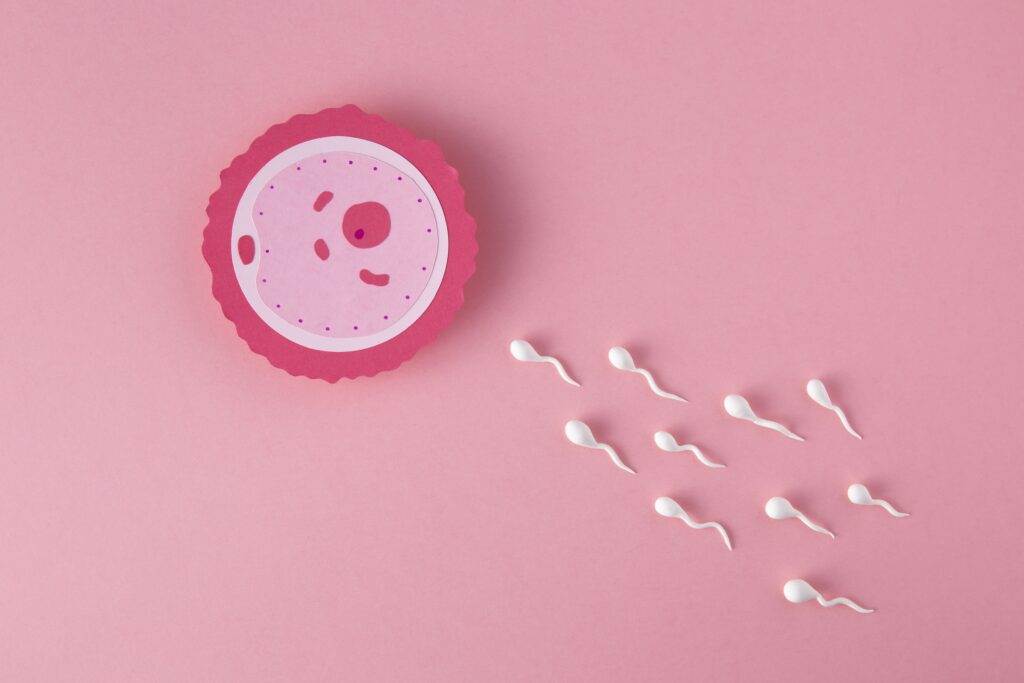Body Mass Index (BMI)/weight can have an impact on fertility in both men and women. Let us discuss the relationship for each gender separately:
- Women:
- Low BMI: Women with a low BMI (typically below 18.5) may experience irregular or absent menstrual cycles, which can affect ovulation and decrease fertility. Low BMI is associated with hormonal imbalances and lower production of reproductive hormones.
- High BMI: Women with a high BMI (typically above 25 or 30) may face challenges in getting pregnant. Obesity can disrupt the normal hormonal balance, leading to irregular ovulation or even anovulation (no ovulation). Additionally, high BMI is linked to insulin resistance, polycystic ovary syndrome (PCOS), and higher rates of infertility.
- Men:
- Low BMI: Men with a low BMI may have lower sperm quality and lower sperm count. Insufficient nutrition and low body weight can affect hormone production, sperm development, and overall reproductive health.
- High BMI: Increased BMI in men has been associated with lower sperm quality, lesser sperm concentration (number), and decreased sperm motility. It can also lead to hormonal imbalances, such as elevated estrogen levels, which can negatively impact fertility by affecting sperm health.
In both men and women, achieving a healthy weight and BMI within the normal range (18.5 to 24.9) is beneficial for fertility. Maintaining a balanced diet, regular exercise, and a healthy lifestyle can contribute to improving fertility outcomes. Thus the best advice to couples or individuals with a high BMI or weight on the higher side is LIFESTYLE MODIFICATION.
It is important to understand that BMI is just one factor among many others that can influence fertility. Other factors such as age, underlying medical conditions, genetics, and lifestyle choices also play a significant role.

